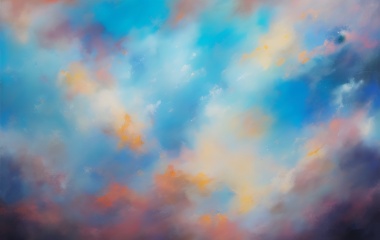
Sadly, some people need stimulants--be they (legal) alcohol or (illegal) drugs--to stimulate themselves and put themselves in a good mood. Others, however, can get "high" naturally, something that often surprises those in the former camp.
The Talmud relates how a certain matron, upon seeing the cheerful countenance of Rav Yehudah, exclaimed "moreh vravi[1], a teacher and drunkard!" Can it be that one who is a teacher of the law can also be a drunk? Whereas today, many would not even understand the question, as we have totally bifurcated the relationship between teacher and subject, in Talmudic times it was understood that those who teach must live by the ideals they espouse. Learning was not a theoretical exercise; it was to be taught by example. Rav Yehuda answered that not only was he not drunk, but that he never imbibed alcohol except for "kiddush, havdalah and the four cups [of wine for] Pesach" (Nedarim 49b). Such is not surprising when one considers that, in drinking those four cups of wine, he had a headache from Pesach until Shavuot. Rav Yehuda rather quoted the verse, "The wisdom of man makes the face shine" (Kohelet 8:1). Blessed is the person whose joy is internal, who gets happiness from his spiritual activities.
Rav Yehuda was not the first to be accused of being drunk. Years earlier, Channah was thought to be drunk as she fervently prayed for a child (Shmuel 1 Chapter 1, Brachot 31a). It was her prayer that serves as a template and model for all subsequent Jewish prayer. There is often a fine line between (excessive) religious devotion and artificial stimulants that we dare not cross.
The matron was not the only one to comment on Rav Yehuda's striking looks. In the two other cases, one involving Rabbi Tarfon[2] and one involving a heretic, Rav Yehuda explained that his bright countenance was due to nutrition and hygiene. It is the harmonious interaction of body and soul that we must strive for.
If Rav Yehuda's face radiated joy, apparently such could not be said about Rabbi Yehoshua ben Chananiah. "The Emperor's daughter said to Rav Yehoshua ben Chananiah: 'Such comely wisdom in an ugly vessel!'" (Nedarim 50b). If Torah is so beautiful, then why is one who studies it so ugly, she wondered? Rabbi Yehoshua calmly responded by asking, "In what do you store your wine?" When she responded, "in earthen jars," Rabbi Yehoshua replied, "But all [common] people store [wine] in earthen vessels, and you, too, likewise! You should keep it in jars of gold and silver!" Of course, when she did just that, the wine tasted none too good. "Torah is the same," he responded. "But are there not handsome people who are learned, too?" she asked. "Were they ugly, they would be even more learned," he retorted.
It seems rather harsh to equate good looks with a lessening of Torah. The Torah goes out of its way to praise the beauty of our matriarchs, and demands that we glorify our mitzvoth by making them aesthetically appealing.
It is not looks, per se, that impact on who is or is not more learned. It is the time we spend focusing on our physical appearance that matters. Rav Yehoshua--who was not blessed by G-d with physical beauty--felt that had he been handsome, he likely would have spent much time tending to his appearance, time taken from Torah study. I am not at all certain that Rabbi Yehuda felt the same way.
No matter one's physical beauty or lack thereof, one must always ensure that one looks presentable. The Gemara says that a Torah scholar who goes out in public with "a stain on his clothes", who is unkempt, desecrates the name of G-d (Shabbat 114a). While there are forces of nature we cannot control, we must always ensure that that which we can control brings honour to man and G-d.
[2] As Rav Yehuda studied Torah on a daily basis, and presumably regularly had a shining face, on this particular day he must have looked even better and thus, it must have been caused by something beyond Torah study. To a heretic, there is little point in extolling the virtues of Torah study--it's best to speak in language they can relate to.



